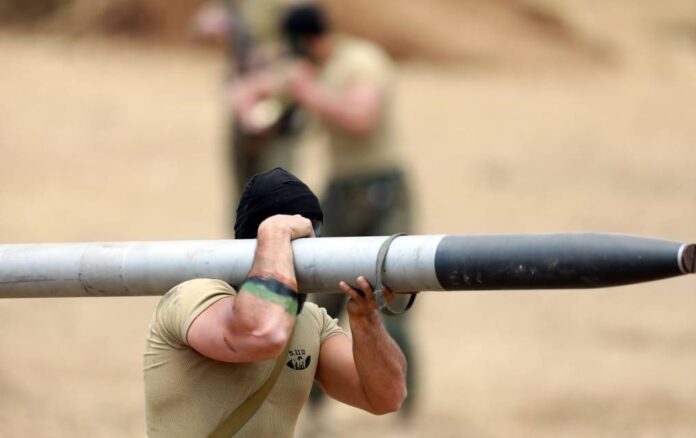Overnight Lebanon’s Hezbollah militia launched a barrage of rockets at northern Israel, an action that marks a significant escalation in the ongoing conflict between Israel and various militant groups in the region. This attack is seen as Hezbollah’s response to the killing of Saleh al-Arouri, the deputy political leader of Hamas, by what is presumed to be an Israeli strike in Lebanon’s capital earlier in the week.
The specifics of the attack reveal that Hezbollah fired 62 rockets towards an Israeli air surveillance base on Mount Meron, claiming direct hits. Additionally, two army posts near the border were also targeted. The Israeli military acknowledged that about 40 rockets were fired towards Meron and confirmed that a base was targeted, although there was no mention of the base being hit. The military responded by striking the Hezbollah cell responsible for the rocket launches.
This violent exchange occurred amidst an already tense situation, as the Israel-Hamas war continues to rage on. The conflict was initially triggered by a deadly Hamas attack on southern Israel, which resulted in the killing of about 1,200 people, mostly civilians, and the taking of approximately 250 hostages. In response, Israel has been scaling back its military assault in the north of Gaza while pressing a heavy offensive in the south, aiming to crush Hamas. This has led to a dire humanitarian situation in Gaza, where 2.3 million Palestinians are being squeezed into smaller areas and subjected to continuous Israeli airstrikes.
The recent activities have led to a significant increase in civilian casualties. The Health Ministry in Hamas-run Gaza reported that 122 Palestinians were killed in the past 24 hours, bringing the total since the start of the war to 22,722, including a high proportion of women and children. The overall number of wounded has risen to 58,166. Israel, on the other hand, holds Hamas responsible for civilian casualties, citing their embedding within Gaza’s civilian infrastructure. However, international criticism of Israel’s conduct in the war has grown due to the rising civilian death toll in Gaza.
These developments have drawn the attention of the international community, including the United States. U.S. Secretary of State Antony Blinken has commenced an urgent Middle East diplomatic tour, his fourth to the region since the eruption of the Israel-Hamas war. The tour aims to exert influence on Iran and its proxies to prevent further regional escalation and explore possibilities for post-war reconstruction in Gaza.
This situation highlights the complex and multi-faceted nature of the conflict in the Middle East, where actions by one group can have wide-ranging implications, often leading to a cycle of violence and retaliation that affects countless lives.
Image is licensed under the Creative Commons Attribution 4.0 International license and was created by the Tasnim News Agency.









